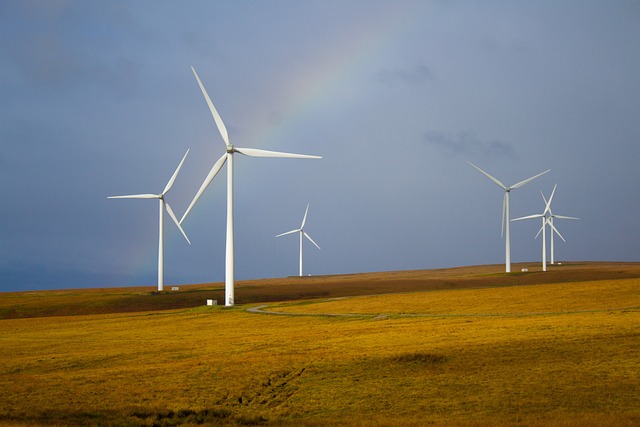
“When considering the next steps in the university’s renewable energy strategy we determined that sourcing electricity from local, renewable resources was the most impactful choice,” says Natalie Hayes, director of Bentley’s Office of Sustainability .
Sophie Rodgers formerly a senior manager in the OOS and a critical player in securing this agreement, adds, “This was a major undertaking by Bentley, and it keeps the university on target with the goals in its Sustainability and Climate Action Plan.”
Choosing a resource in the northeast, according to Hayes, was intentional to provide an added learning component for Bentley students. Office of Sustainability staff collaborated with Assistant Professor of Energy Zana Cranmer in the Department of Natural Sciences to create an intensive field course on wind energy that will incorporate a site visit to the wind farm.
The field course, in development for spring 2025, will complement a series of courses that Cranmer teaches about energy — with an emphasis on renewable energy and energy efficiency.
The Kibby Wind Farm is owned and operated by REV Renewables. Formed by LS Power in 2021, REV manages one of the nation’s largest independent portfolios of renewables and energy storage, with an operating portfolio approaching 3 GW and a substantial development pipeline.
Bentley’s agreement, which provides physical energy from the Kibby Wind Farm, was advised by Roots Clean Energy, whose President, Alex Sowyrda, says, “Bentley was determined to reduce their carbon footprint and was never willing to cut corners. They never wavered in their commitment to positively impacting a more sustainable future.
"From the first conversation, they were determined to have 100% of the campus powered by electricity generated from a local renewable resource.”
Bentley’s Sustainability and Climate Action Plan focuses on climate resilience, further reductions in campus greenhouse gas emissions, equity and education. As of fiscal year 2023, the university’s sustainability accomplishments include:
The university’s strategic commitment to local energy through initiatives like the Kibby Wind Farm agreement supports data showing that sustainability matters increasingly to Americans, especially younger generations. Forbes, for example, reported that “Gen Z is emerging as ‘the sustainability generation.’”
“Approximately 50% of Bentley’s carbon footprint comes from electricity use, so purchasing electricity generated by the Kibby Wind Farm is a huge step for the university to stay on the path toward carbon neutrality through clean energy sources,” Rodgers says. “It’s a historic move for Bentley and supports the Office of Sustainability’s vision for the university to be a model for sustainability in higher education, developing organizational leaders committed to making their institutions, communities and the world more sustainable.”
Information provided by Bentley University

